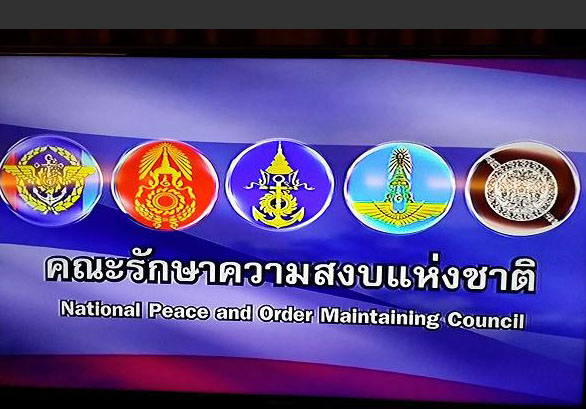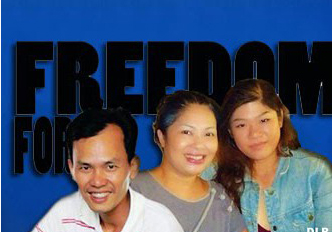
Jan 29, 2015 | News
Three recent decisions by the Bangkok Military Tribunal affirming its jurisdiction over civilians violate international law and represent another serious setback for human rights in Thailand, the ICJ said today.
“International standards are clear – military tribunals are not competent to prosecute civilians,” said Wilder Tayler, ICJ’s Secretary General. “Military tribunals are not independent from the executive and the lack of an appeal removes any possibility of a remedy against the judgments of the Tribunal.”
The first case concerns a political activist, Sirapop Korn-arut, who was charged with violating an order of Thailand’s ruling military junta, the National Council for Peace and Order (NCPO), to report to the military for allegedly violating Thailand’s highly restrictive lese majeste law. The second case concerns the prosecution of an anti-military coup activist, Sombath Boonngam-anong, accused of violating NCPO orders and instigating rebellion in June 2014. In the third, a Thammasat University law lecturer, Worajet Pakeerat, is charged with violating a NCPO summons to report to the military.
All three had challenged the jurisdiction of the Tribunal to prosecute civilians.
In three separate rulings, delivered on 22, 23 and 26 January 2015, the Tribunal rejected the defendants’ challenges to its jurisdiction.
“These decisions set a worrying precedent for all civilians currently facing prosecution before military tribunals in Thailand. All cases of civilians facing charges before military tribunals must be transferred to civilian courts immediately if Thailand is to comply with its international obligations,” said Tayler.
According to observers, at least 100 civilians have faced prosecution in military tribunals since the military coup. The Royal Thai Government has not yet released the official number.
While the ICJ observed Professor Worajet’s hearing on 26 January, written decisions have not yet been made publically available in these cases.
Background
Under Article 14 of the International Covenant on Civil and Political Rights (ICCPR), to which Thailand is a state party, everyone has the right to a “fair and public hearing by a competent, independent and impartial tribunal established by law.”
The imposition of Martial Law and the State’s suspension of some of its obligations under the ICCPR, including the right to appeal guaranteed by Article 14(5) for cases heard by military tribunals, does not affect the applicability of this provision.
Article 61 of the Thai Act for the Organization of the Military Court prevents any appeal from the decision of military tribunals so long as Thailand remains under Martial Law, which has been in force nationwide since 22 May 2014.
The Principles Governing the Administration of Justice through Military Tribunals sets out principles that apply to state use of military tribunals.
Principle 5 states “Military courts should, in principle, have no jurisdiction to try civilians. In all circumstances, the State shall ensure that civilians accused of a criminal offence of any nature are tried by civilian courts.”
Further, Principle 2 clarifies that even in times of crisis military tribunals must “apply standards and procedures internationally recognized as guarantees of a fair trial.”

Dec 13, 2014 | News
The ICJ condemned decision of the People’s Supreme Court on 12 December 2014 affirming the unfair convictions of human rights defenders Bui Thi Minh Hang, Nguyen Van Minh and Nguyen Thi Thuy Quynh respectively to three, two-and-a half and two years imprisonment.

Nov 19, 2014 | News
Thailand must end immediately the prosecution of civilians in military tribunals and transfer all remaining cases to the civilian courts, said the International Commission of Jurists (ICJ) today.
On 18 November 2014, the Bangkok Military Tribunal convicted a political broadcaster, Khathawut B., of lese majeste under article 112 of the Thai Criminal Code and Article 14 of the Computer Crimes Act, and sentenced him to five years in jail following a plea of guilty. The court barred observers and the public from the proceedings on the ground that they “concerned matters of national security.”
There is no appeal possible under article 61 of the Thai Act for the Organization of the Military Court so long as Thailand remains under Martial Law, which has been in force nationwide since May 22.
“Under international standards, civilians should not be subject to the jurisdiction of military tribunals, particularly where, like in military-ruled Thailand, military tribunals lack the institutional independence from the executive required by international law regarding fair trials. Thus, civilians convicted before such tribunals should have the right to a new trial before a civilian court,” said Wilder Tayler, Secretary General of the ICJ. “This case also highlights another very serious problem with the state of human rights in Thailand: Thailand’s misuse of criminal defamation laws to imprison people exercising their right to freedom of expression.
The National Council for Peace and Order (NCPO) extended the jurisdiction of military tribunals over civilians after it took power by a coup d’etat and imposed Martial Law throughout Thailand. Prior to this, civilians had not been subject to military jurisdiction in Thailand for crimes not directly involving the military for decades, including during the state of emergency in place in southern Thailand since 2004.
Among crimes now within the jurisdiction of military tribunals in Thailand is lese majeste – criminalizing the making of statements that could be construed as defaming or insulting the Thai Monarchy. Such broad restrictions violate the right to freedom of expression guaranteed under article 19 of the International Covenant on Civil and Political Rights (ICCPR), to which Thailand is a state party.
Since the coup, at least 69 civilians have faced prosecution before military tribunals in Thailand on charges ranging from breaching NCPO orders, to planning a terrorist act and lese majeste.
Under article 14 of the ICCPR, everyone has the right to a “fair and public hearing by a competent, independent and impartial tribunal established by law.” The imposition of Martial Law, and the State’s suspension of some of its obligations under the ICCPR, including the right to appeal guaranteed by article 14(5) for cases heard by military tribunals, does not affect the applicability of this provision.
“All prosecutions of civilians before military tribunals must be transferred to civilian courts immediately, if Thailand is to comply with its international obligations,” said Tayler. “There is absolutely no excuse or justification for the use of military tribunals to prosecute civilians in Thailand, and especially not for simply exercising the right to freedom of expression.”
The Draft Principles Governing the Administration of Justice through Military Tribunals, set out principles that apply to state use of military tribunals.
Principle 5 states “Military courts should, in principle, have no jurisdiction to try civilians. In all circumstances, the State shall ensure that civilians accused of a criminal offence of any nature are tried by civilian courts.”
Further, Principle 2 states “Military tribunals must in all circumstances apply standards and procedures internationally recognized as guarantees of a fair trial.” Military tribunals must in all circumstances respect the principles of international law relating to a fair trial, even in times of crisis.
Thailand-military courts-news-press release-2014-THAI (full text, PDF)

Nov 6, 2014 | Events
The ICJ’s Director of International Law and Protection Programmes, Alex Conte, will speak next week on access to justice at a meeting of the OECD Public Governance Committee.
The meeting Fostering Inclusive Growth and Trust in Justice Institutions: Access, Performance and Alternatives, will be held in Paris on 12 November 2014.
The ICJ’s presentation will focus on the key components of access to justice as a means of ensuring access by all to legal institutions capable of rending independent, impartial, binding and enforceable decisions.
It will also address the question of how, when such components are adhered to, trust in justice institutions is attained, from the perspective of the rule of law and public governance, from individuals’ perspectives and from investment and international perspectives.

Oct 15, 2014 | News
The Malaysian government must ensure a rally tomorrow by lawyers protesting the country’s stifling Sedition Act can proceed peacefully, without undue interference by the police, who must take lawful measures to prevent violence from counter protesters, said the ICJ today.









